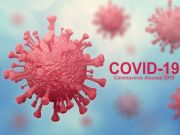
Though the physical health risks posed by COVID-19 are at the top of everyone’s mind, experts warn the pandemic is also exacting a massive toll on mental health. So finds new research emerging on the mental health effects in China, where infection peaks and lockdowns have preceded the American experience by several months. For example,… read on >






























